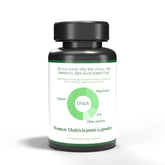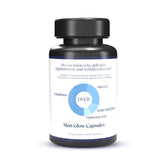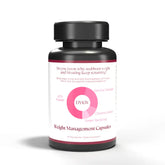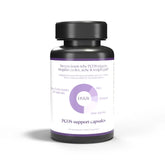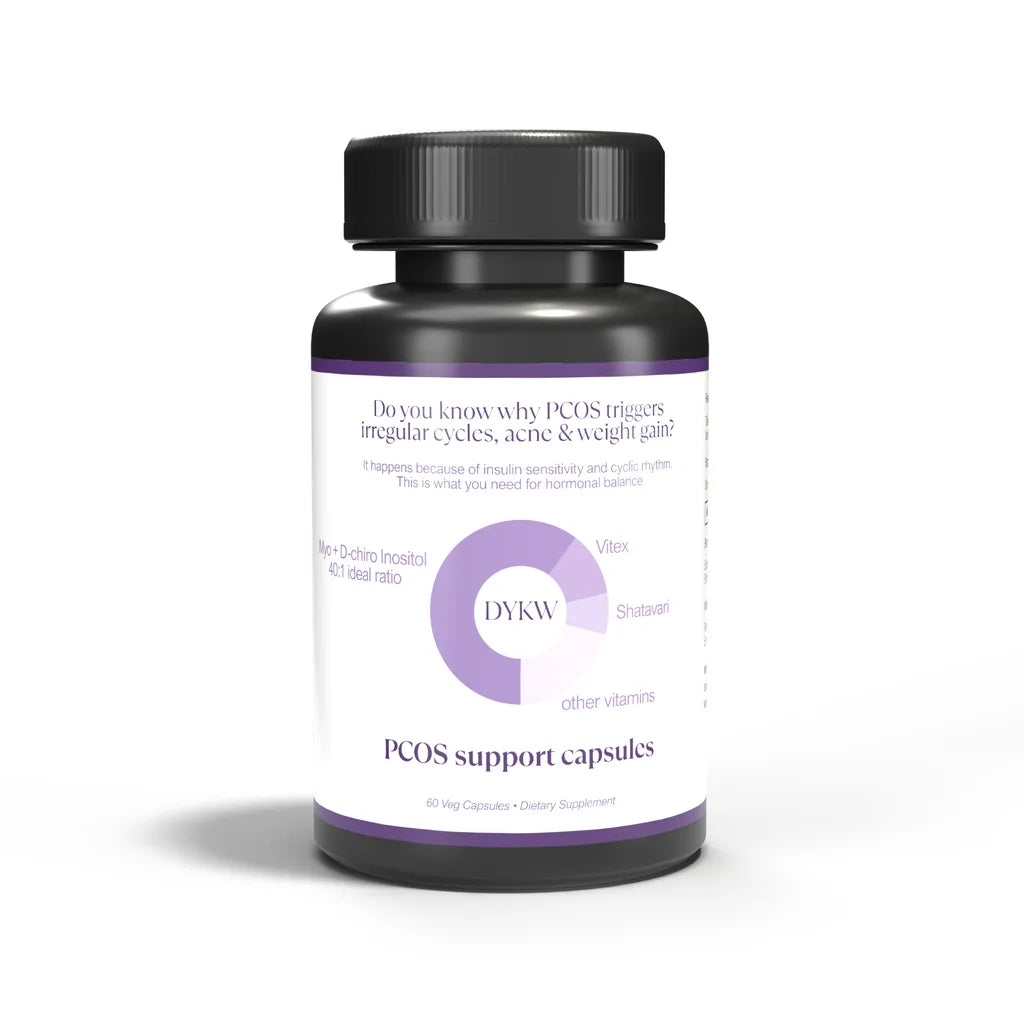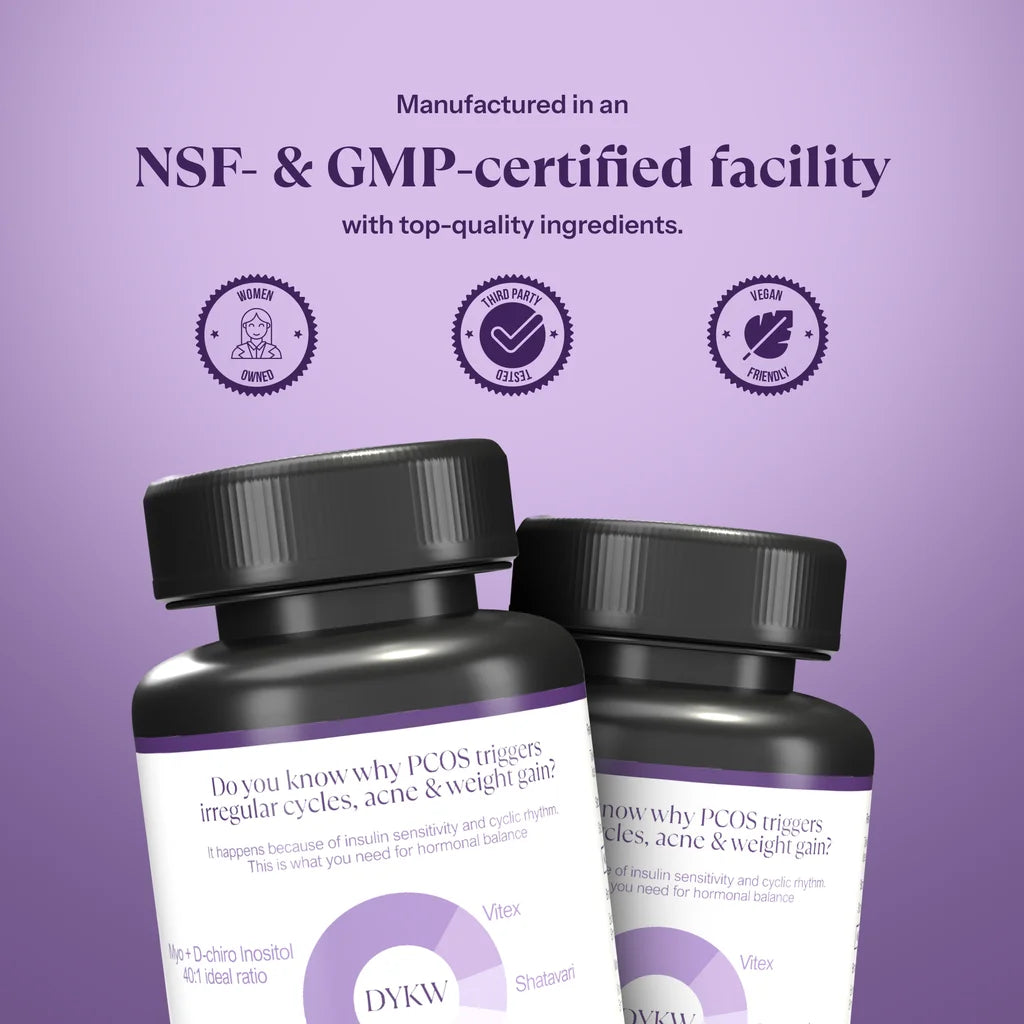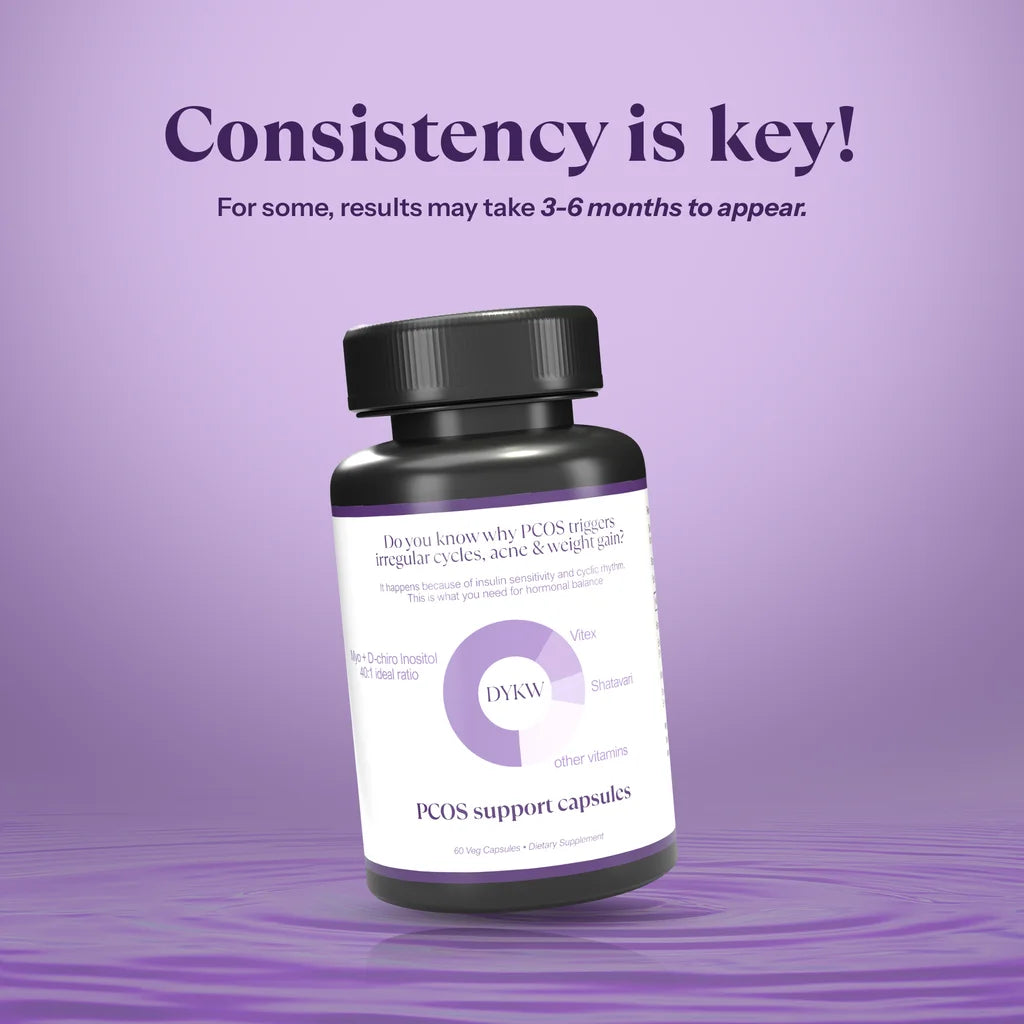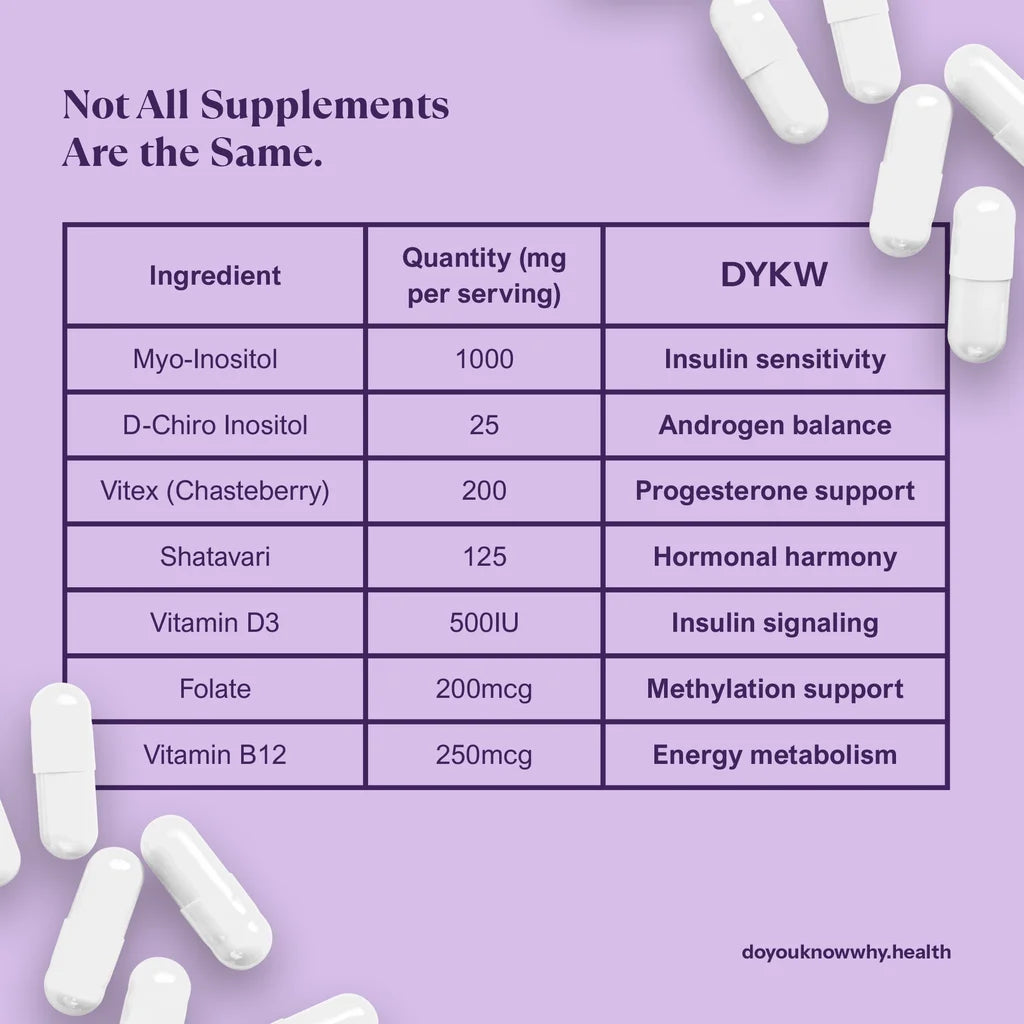What Every Woman with PCOS Needs to Know About Inositol
If you're one of the millions of women dealing with PCOS, you've probably heard about inositol for PCOS and wondered if it could help manage your symptoms. This powerful supplement has been gaining attention as a PCOS natural treatment that may help tackle some of the condition's most frustrating challenges.
This guide is for women with PCOS who want to understand how inositol benefits women and whether it's right for their health journey. We'll break down what the research says about myo-inositol PCOS treatment and explore the proven benefits of inositol for women with PCOS, including how it may help with insulin resistance and hormone balance.
You'll also learn about the different types of inositol supplements available, how to find the right inositol dosage PCOS management, and what to watch for regarding inositol side effects. By the end, you'll have the knowledge you need to make an informed decision about adding the best inositol supplement PCOS treatment to your wellness routine.
How PCOS Disrupts Your Hormonal Balance
PCOS turns your hormonal system into a chaotic orchestra where every instrument is playing out of tune. Your ovaries start producing too much testosterone and other male hormones called androgens, which should normally stay at lower levels in women. This hormonal chaos doesn't just affect your reproductive system – it sends ripple effects throughout your entire body.
Your menstrual cycles become unpredictable or stop altogether because the excess androgens interfere with normal ovulation. The delicate dance between estrogen, progesterone, and luteinizing hormone gets completely disrupted. Many women notice their skin becoming oilier, acne flaring up, and unwanted hair growth appearing on their face, chest, or back. These are all signs that your body is struggling with elevated testosterone levels.
The hypothalamic-pituitary-ovarian axis, which normally keeps your reproductive hormones in perfect balance, starts malfunctioning. Your brain sends mixed signals to your ovaries, creating a feedback loop that perpetuates the hormonal imbalance. This explains why PCOS hormone balance becomes such a persistent challenge that requires targeted intervention rather than quick fixes.
Why Insulin Resistance Becomes Your Biggest Enemy
PCOS insulin resistance affects up to 70% of women with the condition, making it the most significant underlying factor driving your symptoms. When your cells stop responding properly to insulin, your pancreas compensates by producing more and more of this hormone. The problem is that excess insulin directly stimulates your ovaries to produce more testosterone, creating a vicious cycle.
High insulin levels also signal your liver to produce less sex hormone-binding globulin (SHBG), a protein that normally keeps testosterone levels in check. With less SHBG available, more free testosterone circulates in your bloodstream, worsening symptoms like hirsutism, acne, and irregular periods.
Your body starts storing fat more easily, particularly around your midsection, because insulin is essentially a storage hormone. This abdominal weight gain isn't just about appearance – it creates more insulin resistance, making the whole situation worse. The fat cells in your belly also produce inflammatory substances that further disrupt your hormonal balance.
Blood sugar swings become your daily reality. You might experience energy crashes after meals, intense sugar cravings, or feeling shaky when you haven't eaten. These symptoms occur because your body can't efficiently process glucose, leaving you on an exhausting blood sugar roller coaster.
The Connection Between PCOS and Chronic Inflammation
Chronic low-grade inflammation runs like an underground fire through your body when you have PCOS. Your immune system stays constantly activated, producing inflammatory markers like C-reactive protein and interleukin-6 at higher levels than normal. This isn't the acute inflammation you get from a cut or infection – it's a persistent, simmering inflammatory state that damages your tissues over time.
The inflammation directly interferes with insulin signaling, making insulin resistance worse. Your fat tissue, especially visceral fat around your organs, becomes metabolically active and releases pro-inflammatory cytokines. These inflammatory molecules travel through your bloodstream, affecting your ovaries, liver, and other organs.
Oxidative stress goes hand-in-hand with this inflammation. Your cells face constant damage from free radicals, while your body's antioxidant defenses become overwhelmed. This cellular stress contributes to the long-term complications associated with PCOS, including increased cardiovascular disease risk.
The inflammatory environment also affects your mood and mental health. Many women with PCOS experience higher rates of anxiety and depression, which researchers now understand is partially linked to the inflammatory processes happening in their bodies.
How Metabolic Dysfunction Affects Your Daily Life
Living with PCOS means dealing with metabolic chaos that touches every aspect of your day. Your energy levels fluctuate wildly – you might feel exhausted after meals or experience afternoon crashes that make it impossible to concentrate. Simple tasks become harder when your body can't efficiently convert food into usable energy.
Sleep quality suffers because hormonal imbalances and insulin resistance disrupt your natural circadian rhythms. You might have trouble falling asleep, wake up frequently during the night, or feel unrefreshed even after a full night's rest. Poor sleep then worsens insulin resistance and hormonal imbalances, creating another destructive cycle.
Weight management becomes an uphill battle that feels impossible to win. Traditional dieting approaches often fail because they don't address the underlying metabolic dysfunction. Your body holds onto fat more stubbornly, and losing weight requires much more effort than it should.
Food cravings, particularly for carbohydrates and sweets, become intense and frequent. Your dysregulated blood sugar and hormonal imbalances create these cravings as your body desperately tries to maintain stable glucose levels. This makes healthy eating feel like a constant struggle against your own biology.
Mental clarity and focus suffer when your brain doesn't receive steady fuel from properly regulated blood sugar. You might experience brain fog, difficulty concentrating, or memory problems that interfere with work and daily activities.
The science behind inositol as a vitamin-like compound
Inositol belongs to the B-vitamin family and acts like a messenger inside your cells. Your body naturally produces small amounts, but you can also get it from foods like citrus fruits, beans, and whole grains. Think of inositol as your cellular communication system – it helps different parts of your body talk to each other more effectively.
There are nine different types of inositol, but two forms stand out for women with PCOS: myo-inositol and D-chiro-inositol. These compounds work at the cellular level to improve how your body processes insulin and manages hormones. Your ovaries, liver, and muscle cells all have special receptors that respond to inositol, making it a powerful ally for managing PCOS symptoms.
Research shows that women with PCOS often have lower levels of inositol in their bodies compared to women without the condition. This deficiency can worsen insulin resistance and hormonal imbalances, creating a cycle that's hard to break without intervention.
How inositol improves insulin sensitivity naturally
Inositol for PCOS works by enhancing your body's ability to use insulin effectively. When you eat, your pancreas releases insulin to help cells absorb glucose from your bloodstream. With PCOS, this process often gets disrupted, leading to insulin resistance.
Inositol steps in as a natural insulin sensitizer. It helps insulin bind better to cell receptors, particularly in muscle and fat cells. This improved binding means your cells can absorb glucose more efficiently, reducing the amount of insulin your pancreas needs to produce.
Here's how this process benefits women with PCOS:
-
Reduced insulin levels: Lower insulin means less stimulation of androgen production in your ovaries
-
Better glucose control: More stable blood sugar levels throughout the day
-
Decreased cravings: Better insulin sensitivity often reduces sugar and carb cravings
-
Improved metabolism: Enhanced insulin function supports healthier weight management
Studies demonstrate that myo-inositol supplementation can improve insulin sensitivity by up to 40% in women with PCOS within just a few months of consistent use.
The role of inositol in restoring hormonal balance
PCOS hormone balance depends heavily on breaking the cycle of elevated insulin and excess androgens. Inositol addresses this at multiple levels, creating a cascade of positive effects throughout your endocrine system.
When insulin levels stay high due to resistance, your ovaries respond by producing more testosterone and other androgens. This leads to classic PCOS symptoms like irregular periods, acne, and excess hair growth. Inositol benefits women by interrupting this cycle at its source.
Key hormonal improvements include:
|
Hormone |
Effect of Inositol |
|---|---|
|
Insulin |
Reduces elevated levels by 20-40% |
|
Testosterone |
Decreases by 15-30% in most women |
|
LH (Luteinizing Hormone) |
Helps normalize LH:FSH ratio |
|
Progesterone |
Supports regular ovulation and production |
Myo-inositol PCOS supplementation also supports ovarian function directly. Your ovaries contain high concentrations of inositol, which helps regulate follicle development and ovulation. When inositol levels are adequate, eggs mature more normally, leading to more regular menstrual cycles and improved fertility.
The compound also influences neurotransmitter production, particularly serotonin, which can help stabilize mood and reduce anxiety – common concerns for many women with PCOS. This creates a comprehensive approach to managing the condition that goes beyond just addressing insulin resistance.
Regulating Irregular Menstrual Cycles Effectively
Women with PCOS often struggle with unpredictable periods that can arrive weeks or months apart. Inositol for PCOS has shown remarkable results in restoring menstrual regularity. Clinical studies demonstrate that myo-inositol supplementation can normalize cycle length within 3-6 months of consistent use.
The supplement works by improving insulin sensitivity, which directly impacts hormone production. When insulin resistance decreases, the ovaries receive clearer signals to produce hormones in proper ratios. This restoration of hormonal balance helps trigger regular ovulation, leading to more predictable menstrual cycles.
Research shows that 65-70% of women taking myo-inositol PCOS supplements experience significant improvements in cycle regularity. Many report moving from having only 2-3 periods per year to achieving monthly cycles within six months of starting supplementation.
Reducing Excess Androgen Levels and Hirsutism
High androgen levels create some of the most distressing PCOS symptoms, including excessive hair growth on the face, chest, and back. Inositol benefits women by naturally lowering these elevated male hormones without harsh pharmaceutical interventions.
Studies reveal that inositol supplementation can reduce total testosterone levels by up to 73% and free testosterone by 30%. This dramatic reduction translates to real improvements in hirsutism scores, with many women noticing slower hair growth and finer texture within 3-4 months.
The anti-androgenic effects extend beyond cosmetic concerns. Lower androgen levels also reduce acne severity, improve scalp hair loss patterns, and help balance mood fluctuations commonly associated with hormonal imbalances.
Supporting Healthy Weight Management and Metabolism
Weight management remains one of the biggest challenges for women with PCOS, but inositol offers powerful metabolic support. This PCOS natural treatment addresses the root cause of weight gain by improving insulin function and glucose metabolism.
PCOS insulin resistance makes losing weight extremely difficult through diet and exercise alone. Inositol breaks this cycle by enhancing insulin sensitivity by up to 22%, allowing cells to use glucose more efficiently and reducing fat storage signals.
Clinical trials show women taking inositol lose an average of 2-5 pounds more than those using placebo over 12-week periods. More importantly, they experience:
-
Reduced waist circumference
-
Decreased body fat percentage
-
Improved energy levels
-
Better appetite control
-
Enhanced fat burning during exercise
Improving Fertility and Ovulation Rates
For women trying to conceive, inositol represents hope for natural fertility enhancement. Inositol PCOS research shows ovulation rates improve from 25% to 84% with supplementation, making it one of the most effective natural fertility treatments available.
The supplement improves egg quality by optimizing the cellular environment within follicles. Better insulin sensitivity means eggs receive proper nutrition during development, leading to healthier embryos and improved pregnancy rates.
Multiple studies confirm that women taking inositol achieve pregnancy at rates comparable to those using fertility medications like metformin or clomiphene, but with fewer side effects. The time to conception typically decreases from 12-18 months to 6-9 months with consistent supplementation.
Lowering Risk of Gestational Diabetes
Pregnant women with PCOS face elevated risks for gestational diabetes, but inositol supplementation during pregnancy offers significant protection. Research indicates that continuing inositol dosage PCOS protocols during pregnancy can reduce gestational diabetes risk by up to 65%.
The protective effect stems from improved glucose metabolism and insulin sensitivity throughout pregnancy. Women who maintain inositol supplementation show more stable blood sugar levels and require less intervention for diabetes management.
Beyond diabetes prevention, inositol during pregnancy is associated with healthier birth weights, reduced preeclampsia risk, and improved maternal outcomes. The supplement's safety profile makes it an excellent choice for expectant mothers seeking natural health optimization.
Myo-inositol versus D-chiro-inositol differences
When shopping for inositol for PCOS, you'll encounter two primary forms: myo-inositol and D-chiro-inositol. These aren't just different names for the same thing – they work in distinct ways within your body.
Myo-inositol acts like a cellular messenger, particularly effective at improving insulin sensitivity in your ovaries and muscle tissue. Most research showing dramatic improvements in PCOS symptoms has focused on this form. Women taking myo-inositol often see better egg quality, more regular cycles, and reduced testosterone levels.
D-chiro-inositol takes a different approach, primarily targeting liver function and glucose metabolism. Your body naturally converts some myo-inositol into D-chiro-inositol as needed, but women with PCOS often struggle with this conversion process. D-chiro-inositol excels at helping your liver process glucose more efficiently, which can reduce those frustrating blood sugar spikes.
|
Aspect |
Myo-inositol |
D-chiro-inositol |
|---|---|---|
|
Primary target |
Ovaries, muscles |
Liver, glucose metabolism |
|
Main benefits |
Egg quality, cycle regulation |
Blood sugar control |
|
Research volume |
Extensive |
Moderate |
|
Standalone effectiveness |
High |
Moderate |
The optimal 40:1 ratio for maximum effectiveness
Your body naturally maintains a specific balance between these two forms, and research has pinpointed the magic number: 40 parts myo-inositol to 1 part D-chiro-inositol. This 40:1 ratio mirrors what healthy ovaries naturally contain.
Studies consistently show that this precise ratio delivers superior results compared to taking either form alone or in different proportions. Women following this ratio report:
-
65% improvement in ovulation rates
-
Significant reduction in testosterone levels
-
Better insulin sensitivity markers
-
More consistent menstrual cycles
-
Improved pregnancy rates for those trying to conceive
Taking too much D-chiro-inositol can actually backfire. Some studies found that ratios heavily skewed toward D-chiro-inositol (like 1:1) actually worsened egg quality in some women. Your ovaries need that higher concentration of myo-inositol to function optimally.
Why combination supplements outperform single forms
Think of myo-inositol and D-chiro-inositol as a dynamic duo rather than solo performers. Combination supplements that maintain the 40:1 ratio consistently outperform single-ingredient products in clinical trials.
Here's why the combination approach works better:
Comprehensive coverage: While myo-inositol handles ovarian function and insulin sensitivity, D-chiro-inositol tackles glucose metabolism and liver function. Together, they address multiple aspects of PCOS simultaneously.
Enhanced absorption: These two forms support each other's absorption and utilization in your body. Taking them together ensures you're getting the full spectrum of inositol benefits women with PCOS need most.
Cost-effective approach: Instead of buying separate supplements and trying to calculate proper dosing, combination products take the guesswork out of creating an effective PCOS natural treatment regimen.
Better compliance: Managing one supplement is simpler than juggling multiple bottles, making it easier to stick with your routine long-term.
The research strongly supports combination therapy over single-ingredient approaches. Women taking properly balanced combination supplements report faster symptom improvement and better long-term outcomes compared to those using individual forms.
Determining the right dosage for your symptoms
Most women with PCOS see the best results with myo-inositol dosage PCOS ranging from 2-4 grams daily, typically split into two doses. Start with 2 grams per day for the first week to assess your body's response. If you're dealing with severe insulin resistance or irregular periods, you might need to gradually increase to 4 grams daily.
Your specific symptoms should guide your dosage approach:
-
Insulin resistance and weight management: 2-4 grams daily
-
Irregular menstrual cycles: 2-3 grams daily
-
Fertility support: 4 grams daily (often combined with folic acid)
-
Mood and anxiety symptoms: 2-3 grams daily
Always consult your healthcare provider before starting, especially if you're taking diabetes medications or trying to conceive. Some women find that D-chiro-inositol works better when combined with myo-inositol in a 40:1 ratio, which mirrors the body's natural ratio.
Best timing and frequency for optimal absorption
Taking inositol on an empty stomach provides the best absorption, but this can cause mild stomach upset in some women. If you experience nausea, take it with a small snack or meal instead.
Split your daily dose into two parts - morning and evening - for steady blood levels throughout the day. Many women prefer taking their morning dose 30 minutes before breakfast and their evening dose 2 hours after dinner.
Optimal timing schedule:
-
Morning: 30 minutes before breakfast
-
Evening: 2 hours after dinner or 1 hour before bed
-
With food: If stomach sensitivity occurs
-
Consistent timing: Same times daily for best results
Avoid taking inositol with high-fiber meals, as fiber can interfere with absorption. Also, space it away from calcium and magnesium supplements by at least 2 hours.
Foods and supplements to avoid while taking inositol
Certain foods and supplements can reduce inositol's effectiveness or interfere with absorption. Coffee and caffeinated beverages can deplete your body's natural inositol levels, so limit consumption or space them 2 hours apart from your inositol dose.
Foods that may interfere:
-
High-phytate foods (raw nuts, seeds, grains) within 2 hours
-
Excessive fiber supplements
-
Large amounts of dairy (can slow absorption)
-
Alcohol (depletes B-vitamins needed for inositol function)
Supplements to separate:
-
Calcium and magnesium (take 2+ hours apart)
-
Iron supplements (can reduce absorption)
-
High-dose B-complex vitamins (may compete for absorption)
Interestingly, some foods can actually enhance inositol benefits women experience. Folate-rich foods like leafy greens support inositol's metabolic pathways, while moderate amounts of healthy fats can improve absorption.
Expected timeline for seeing improvements
Patience is key when starting inositol for PCOS - your body needs time to respond. Most women notice initial changes within 6-8 weeks, but significant improvements often take 3-6 months of consistent use.
Week 1-2: Possible mild digestive adjustment, some energy improvements
Week 4-6: Better sleep quality, reduced sugar cravings
Week 8-12: Improved insulin sensitivity, weight management benefits
Month 3-4: Menstrual cycle regulation, hormone balance improvements
Month 4-6: Sustained benefits, improved fertility markers
Keep a symptom diary to track your progress - changes can be subtle at first. Some women see faster results with weight loss and energy, while hormonal changes like regular periods may take longer. If you're not seeing any improvements after 3 months of consistent use at the proper dosage, discuss adjusting your approach with your healthcare provider.
Remember that PCOS natural treatment works best when combined with lifestyle changes like regular exercise and a balanced diet low in refined sugars.
Common mild side effects and how to minimize them
Most women taking inositol for PCOS experience minimal side effects, but knowing what to expect helps you feel confident about starting this supplement. The most frequently reported side effects are gastrointestinal in nature and typically occur when you first begin supplementation.
Nausea ranks as the most common complaint, especially when taking larger doses or consuming inositol on an empty stomach. Stomach upset, bloating, and loose stools can also occur during the initial adjustment period. Some women report mild headaches or dizziness in the first few days of use.
The good news is that these inositol side effects are usually temporary and mild. Your body typically adjusts within a week or two of consistent use. To minimize discomfort, start with a lower dose and gradually increase to your target amount over several days. Taking inositol with food significantly reduces nausea and stomach irritation.
Dividing your daily dose into two or three smaller portions throughout the day, rather than taking it all at once, also helps your digestive system adapt more easily. If you experience loose stools, reducing your dose temporarily and then slowly increasing it again often resolves the issue.
Staying well-hydrated and taking inositol at consistent times each day can reduce headaches and dizziness. Most women find that any initial side effects disappear completely once their body adjusts to the supplement.
Who should avoid inositol supplementation
While inositol is generally safe for most women with PCOS, certain groups should exercise caution or avoid supplementation entirely. Pregnant and breastfeeding women should consult their healthcare provider before starting any new supplement regimen, including inositol. Although research suggests inositol may be beneficial during pregnancy for preventing gestational diabetes, proper medical supervision is essential.
Women with bipolar disorder need special consideration, as inositol can potentially interact with mood-stabilizing medications and may affect lithium levels in the body. If you're taking lithium or other psychiatric medications, work closely with your doctor before adding inositol to your routine.
Those with active eating disorders should approach PCOS supplements like inositol carefully, as any focus on supplements might complicate recovery. Professional guidance from both a mental health specialist and healthcare provider familiar with PCOS is recommended.
Women scheduled for surgery should stop taking inositol at least two weeks beforehand, as it may affect blood sugar levels during and after surgical procedures. If you have diabetes and take insulin or other blood sugar medications, close monitoring is necessary when starting inositol supplementation.
Anyone with a known sensitivity to inositol or related compounds should obviously avoid these supplements. If you have multiple health conditions or take several medications, getting medical clearance before starting inositol helps ensure your safety.
Important interactions with medications and other supplements
Understanding how inositol interacts with other medications and supplements helps you use it safely and effectively. While generally well-tolerated, inositol can enhance the effects of certain medications, particularly those that affect blood sugar levels.
If you're taking metformin for PCOS insulin resistance, inositol may amplify its blood sugar-lowering effects. This combination can actually be beneficial for managing PCOS symptoms, but requires monitoring to prevent blood sugar from dropping too low. Women using insulin or other diabetes medications need regular blood sugar checks when starting inositol supplementation.
Inositol can interact with lithium, potentially affecting how your body processes this mood-stabilizing medication. The interaction may reduce lithium's effectiveness or alter its concentration in your blood, making medical supervision crucial if you take both substances.
Certain blood pressure medications may have enhanced effects when combined with inositol, particularly those in the ACE inhibitor category. While not necessarily dangerous, this interaction could lead to blood pressure dropping lower than intended.
When it comes to other PCOS supplements, inositol generally plays well with others. It can be safely combined with vitamin D, omega-3 fatty acids, and most other nutrients commonly recommended for PCOS hormone balance. However, taking multiple supplements that affect blood sugar (like chromium or berberine) alongside inositol requires extra attention to prevent hypoglycemia.
Always space inositol at least two hours apart from calcium or magnesium supplements, as these minerals can interfere with inositol absorption. Taking them at different times of day ensures you get the full benefits of each supplement.
Inositol has emerged as a game-changing supplement for women managing PCOS, offering real hope for better hormonal balance, improved insulin sensitivity, and enhanced fertility outcomes. The research consistently shows that myo-inositol, particularly when combined with D-chiro-inositol in a 40:1 ratio, can make a meaningful difference in managing the complex symptoms that come with this condition.
Taking control of your PCOS doesn't have to feel overwhelming. Start by talking with your healthcare provider about adding inositol to your treatment plan, especially if you've been struggling with irregular cycles, insulin resistance, or fertility concerns. With the right dosage and consistent use, inositol could be the missing piece in your PCOS management puzzle, helping you feel more like yourself again.
